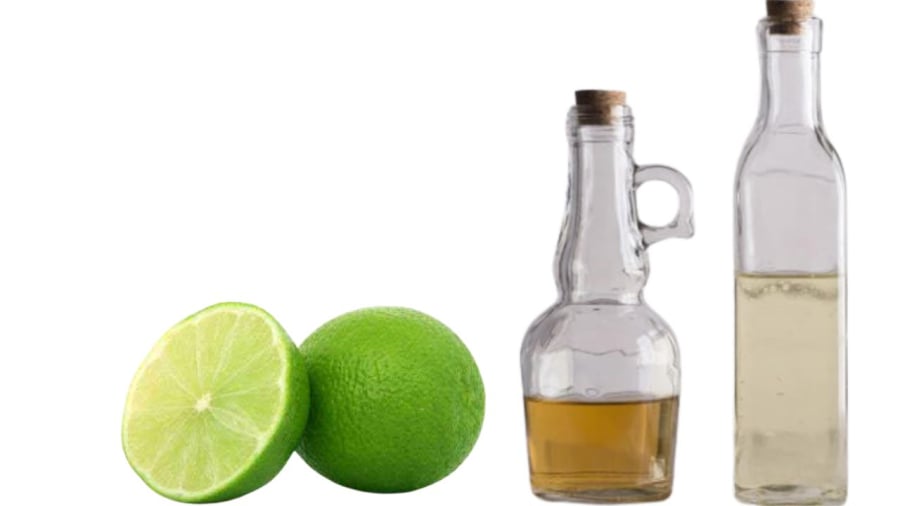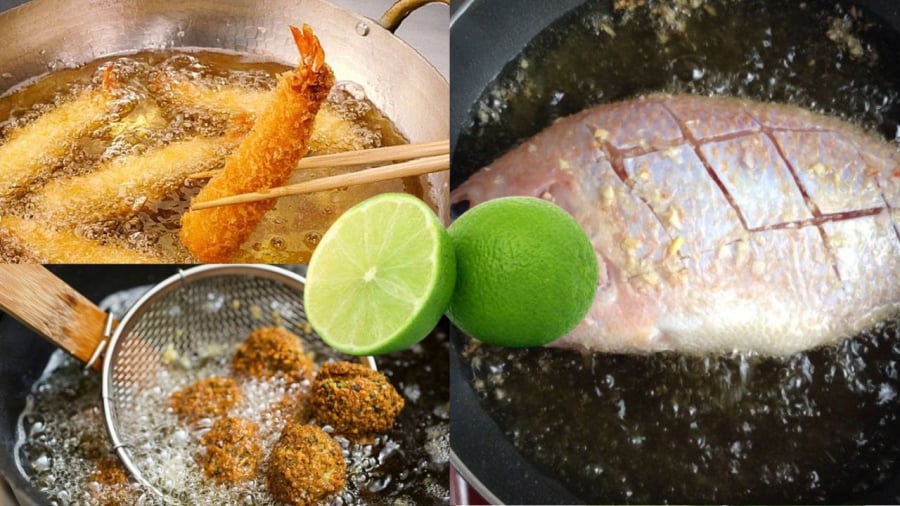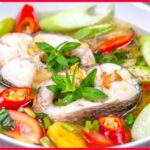A few drops of lemon juice can work wonders in the frying pan. Experienced chefs and home cooks often add a squeeze of lemon juice to their oil to enhance the flavor and texture of their fried dishes.

Lemon Juice Makes Frying Easier
There are a few ways to use lemon juice when frying:
- Cut a lemon into slices and drop them into the hot oil. Use chopsticks to hold the slices and rub them around the pan.
- Squeeze a few drops of lemon juice into the oil before adding the food to be fried.
The acidity and aerating properties of lemon juice help create a crispier and fluffier texture in fried foods. This trick saves time and ensures your dishes stay crispy and delicious, without becoming dry or soggy.
For starchy foods like fritters, French fries, shrimp crackers, and doughnuts, a splash of lemon juice in the oil will make them fluffier and quicker to puff up, resulting in more attractive and longer-lasting crispy treats. So, don’t underestimate the power of fresh lemon juice!

Don’t Forget the Lemon Juice When Frying
Use Starch
Adding a small amount of starch, such as wheat flour, cornstarch, or tapioca starch, to the oil can help prevent oil splatter and create a crispier texture. Starch absorbs moisture from the food, reducing splatter, and its crisp nature helps achieve that perfect golden crunch without overcooking. However, be careful not to add too much starch, as it can burn and produce an unpleasant smell.
Add a Pinch of Salt
Sea salt has the ability to absorb odors, enhance flavor, and promote crispiness in fried foods. It also helps prevent oil splatter. For the best frying results, keep the following tips in mind:
Always ensure your pan is dry before adding oil. Use a soft paper towel to thoroughly dry the pan before pouring in the oil. Alternatively, you can heat the pan until it’s completely dry, but be careful not to overheat it, as this can produce a burnt smell.
Pay attention to the temperature of the oil. Oil that is hot enough will create a quick seal around the food, resulting in a crispy exterior and a moist interior. If the oil is too hot, your food will burn and become bitter. On the other hand, if the oil is not hot enough, your food may fall apart, and the oil will seep into the food, making it greasy. Look for a slight ripple in the oil and a shiny surface when you move your utensil through it—that’s the ideal temperature for frying.
Completely thaw frozen foods and pat them dry before frying. Also, use a paper towel to absorb excess moisture from foods that tend to be wet. Before removing the food from the oil, turn up the heat slightly to ensure it’s nice and dry. Avoid frying at medium temperatures, as this can cause the food to absorb too much oil.
The Ultimate Guide to Crispy, Golden Fried Fish: A Secret Ingredient to Oil-Free, Mess-Free Deliciousness
With the addition of one simple ingredient, you can transform your regular fried fish into a mouth-watering, golden-brown delight. This secret ingredient will ensure a crisp and crunchy exterior, taking your fish frying skills to the next level. It’s time to impress your taste buds and elevate your culinary creations!





































